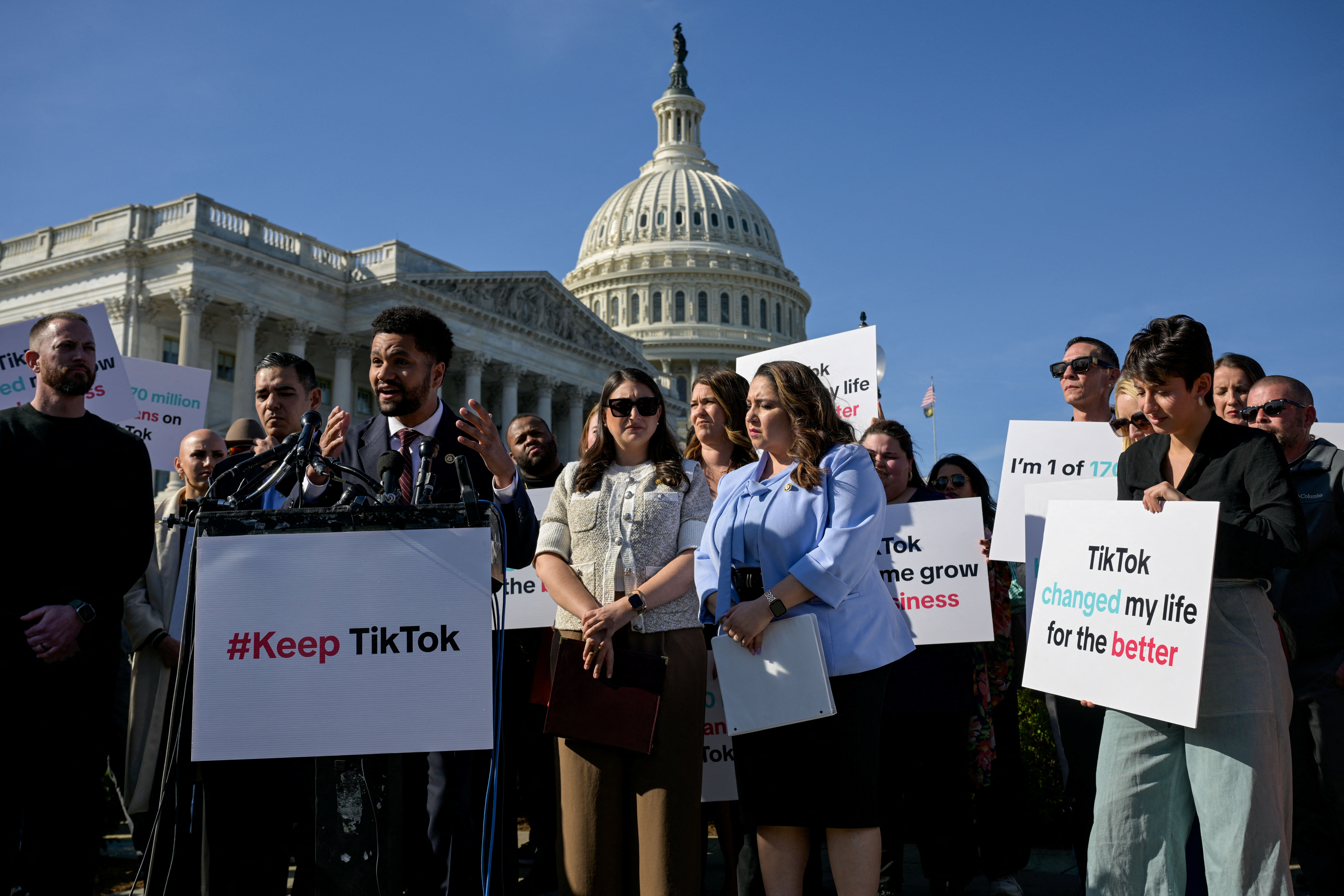US House passes bill that could lead to TikTok ban

The US House of Representatives has passed a bill that could ban TikTok in the country if it is not sold off from Chinese ownership in the next six months.
The measure is the latest in a series of moves in Washington to respond to US national security concerns about China.
“This is a critical national security issue. The Senate must take this up and pass it,” House Republican Steve Scalise said on social media platform X.
Under the bill, TikTok’s Chinese owner ByteDance has six months to divest the US assets of the short-video app, or face a ban.
The bill passed 352-65 in a lopsided bipartisan vote, but it faces a more uncertain path in the Senate.
President Joe Biden said last week he would sign the bill if passed into law.
TikTok CEO Shou Zi Chew said in a video posted on Wednesday the legislation if signed into law “will lead to a ban on TikTok in the United States… and would take billions of dollars out of the pockets of creators and small businesses. It will put 300,000 American jobs at risk.”
He added the company will “not stop fighting” and will exercise its legal rights to prevent a ban.
The Chinese Foreign Ministry criticised the legislation on Tuesday, arguing “though the US has never found any evidence of TikTok posing a threat to the US’s national security, it has never stopped going after TikTok.”
A number of prominent Democrats in the House voted against the bill including House Democratic Whip Kathleen Clark, Arizona Senate candidate Ruben Gallego, Alexandria Ocasio-Cortez as well as the top Democrats on the Judiciary, Ways and Means, Transportation and Intelligence committees.
Several dozen TikTok users rallied outside the Capitol before the vote. The company paid for their travel to Washington and accommodations, a TikTok spokesperson said.
It is unclear whether China would approve any sale or if TikTok’s US assets could be divested in six months.
If ByteDance failed to do so, app stores operated by Apple , Alphabet’s Google and others could not legally offer TikTok or provide web hosting services to ByteDance-controlled applications.
In 2020, then-President Donald Trump sought to ban TikTok and Chinese-owned WeChat but was blocked by the courts.
With agencies



